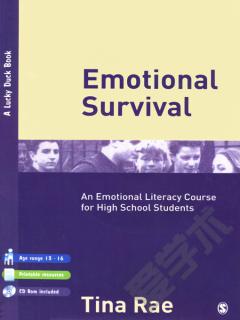Developing the Emotionally Literate School
Emotional literacy is the ability to understand and use information about our own and others emotional states with skill and competences, and make positive relationships with others. This book demonstrates how central this concept is to mainstream education. It defines the key terms used in the field, exploring the idea of emotional literacy and linking it to closely related concepts such as wellbeing, health, learning and intelligence. It outlines the scientific evidence behind the work in this area, explores ways in which schools can become more emotionally literate, and demonstrates the educational benefits of taking a whole school approach to emotional literacy. It gives a practical and up-to-date account of how schools can use emotional literacy to realise their goals of school improvement and effectiveness, increased learning, more effective teaching and learning, greater teacher satisfaction, and improved relationships between students, teachers, parents and the wider community. It explores new findings on ways in which emotional literacy relates to effective learning and whole brain thinking. It also examines how emotional literacy can be profiled, assessed and evaluated and the issues that surround this controversial area. It looks too at wider supports for the emotionally literate school, for example in LEAs and in Healthy School programmes. Chapters include: 1) What is emotional literacy and why is it important to schools? 2) What are we aiming at- what competences are we trying to develop and in what key ways can schools develop them? 3) Some key principles â a whole school approach, targeting, emotionally literate responses to behaviour. 4) Emotional literacy and learning â programmes, the curriculum, the process of learning, learning styles, accelerated learning. 5) What kinds of schools promote emotional literacy? â relationships, communciation, parents, teachersâ own emotional literacy. 6) Profiling, assessing and evaluating emotional literacy. 7) Wider supports for emotional literacy from Local Education Authorities and from Healthy School Approaches.
{{comment.content}}








 京公网安备 11010802027623号
京公网安备 11010802027623号